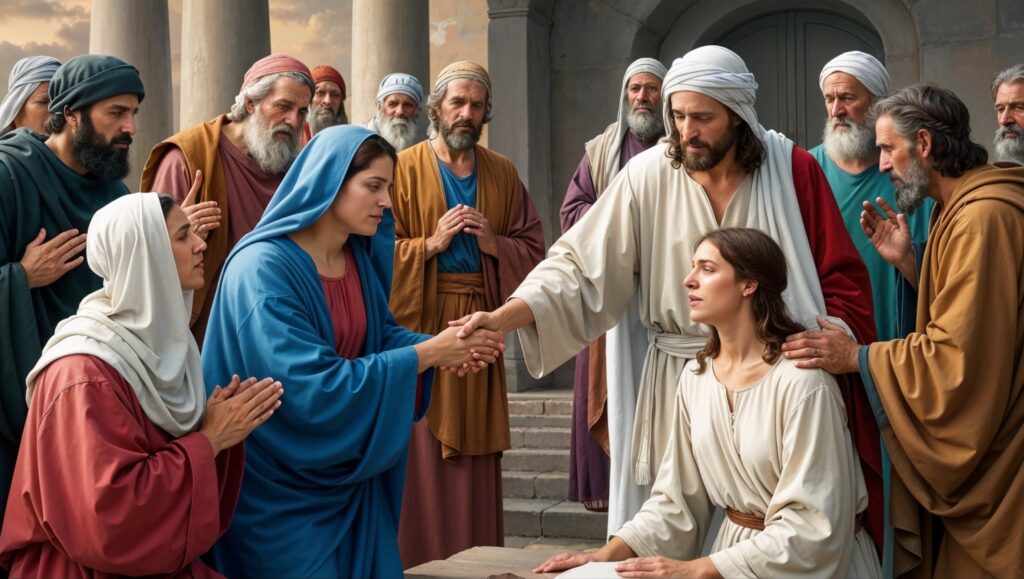Life is a journey marked by seasons—times of planting, waiting, and harvesting. Just as the natural world follows a rhythm ordained by God, so do our lives. Genesis 8:22 serves as a profound reminder of God’s faithfulness and the constancy of His design. It reassures us that no matter what season we find ourselves in, God is present, working for our good.
Genesis 8:22 The New International Version
22 “As long as the earth endures,
seedtime and harvest,
cold and heat,
summer and winter,
day and night
will never cease.”
Understanding the Promise of Seasons
After the flood, God made a covenant with Noah, promising stability in the cycles of nature. This verse reflects not only the physical rhythms of creation but also the spiritual truths embedded within them. Seasons symbolize change and growth, reminding us that life is not static but dynamic—a series of transitions designed to shape us.
- Seedtime and Harvest: These represent times of effort and reward. In some seasons, we sow seeds through hard work, prayer, or acts of faith. In others, we reap the fruits of our labour. Both are essential for growth. The process teaches us patience and trust in God’s timing.
- Cold and Heat: These extremes reflect life’s challenges and comforts. Just as winter prepares the earth for spring’s renewal, difficult times prepare us for new blessings. They build resilience and deepen our reliance on God.
- Day and Night: The cycle of light and darkness reminds us that rest is as vital as action. It teaches us to trust God during moments when we cannot see what lies ahead. Nighttime encourages reflection and renewal, while daytime brings opportunities for action.
Living in Your Season
It’s tempting to compare our lives to others or wish we could skip ahead to a more favourable time. However, each season has a purpose in God’s plan for us. Ecclesiastes 3:1 reminds us that “there is a time for everything, and a season for every activity under the heavens.”
- Embrace Patience: Just as farmers wait for crops to grow after planting seeds, we must trust God’s timing in our lives. Impatience can lead to frustration, but faith reminds us that God’s plans are always perfect.
- Find Contentment: Rather than longing for a different season, ask God to show you the blessings in your current one. Gratitude transforms our perspective and helps us see His hand at work.
- Prepare for Change: Seasons don’t last forever. Whether you’re in a time of abundance or struggle, know that change is inevitable. Trust that God is preparing you for what’s next.
- Seek Growth: Each season offers unique opportunities for personal and spiritual growth. Embrace these moments as chances to learn more about yourself and deepen your relationship with God.
God’s Faithfulness Through Every Season
Genesis 8:22 is a testament to God’s unwavering faithfulness. Just as He sustains the natural order, He sustains us through life’s ups and downs. When we feel overwhelmed by life’s challenges or uncertain about the future, this verse reminds us that God is constant—His promises endure.
Even in seasons of waiting or hardship, we can trust that God is working behind the scenes. Romans 8:28 assures us that “in all things, God works for the good of those who love Him.” This truth encourages us to persevere with hope.
Consider how Joseph’s years of waiting prepared him for leadership in Egypt or how David’s time as a shepherd equipped him to be king. These biblical examples remind us that God’s timing is purposeful and perfect.
Read More About This Devotional
Words of Wisdom: The Gift of Gratitude: Finding God’s Presence in Every Moment
Quote of the Day: “Just because God is not working on your timetable doesn’t mean He isn’t working in your favour”
Reflection Questions
- What season are you currently experiencing—planting, waiting, or harvesting? How can you lean on God during this time?
- Are there areas where you struggle with impatience or discontentment? How can you practice gratitude today?
- How can you embrace growth opportunities in your current season?
Scripture Reading for the Day
Hebrews 7 The New International Version
Melchizedek the Priest
7 This Melchizedek was king of Salem and priest of God Most High. He met Abraham returning from the defeat of the kings and blessed him, 2 and Abraham gave him a tenth of everything. First, the name Melchizedek means “king of righteousness”; then also, “king of Salem” means “king of peace.” 3 Without father or mother, without genealogy, without beginning of days or end of life, resembling the Son of God, he remains a priest forever.
4 Just think how great he was: Even the patriarch Abraham gave him a tenth of the plunder! 5 Now the law requires the descendants of Levi who become priests to collect a tenth from the people—that is, from their fellow Israelites—even though they also are descended from Abraham. 6 This man, however, did not trace his descent from Levi, yet he collected a tenth from Abraham and blessed him who had the promises. 7 And without doubt the lesser is blessed by the greater. 8 In the one case, the tenth is collected by people who die; but in the other case, by him who is declared to be living. 9 One might even say that Levi, who collects the tenth, paid the tenth through Abraham, 10 because when Melchizedek met Abraham, Levi was still in the body of his ancestor.
Jesus Like Melchizedek
11 If perfection could have been attained through the Levitical priesthood—and indeed the law given to the people established that priesthood—why was there still need for another priest to come, one in the order of Melchizedek, not in the order of Aaron? 12 For when the priesthood is changed, the law must be changed also. 13 He of whom these things are said belonged to a different tribe, and no one from that tribe has ever served at the altar. 14 For it is clear that our Lord descended from Judah, and in regard to that tribe Moses said nothing about priests. 15 And what we have said is even more clear if another priest like Melchizedek appears, 16 one who has become a priest not on the basis of a regulation as to his ancestry but on the basis of the power of an indestructible life. 17 For it is declared:
“You are a priest forever,
in the order of Melchizedek.”18 The former regulation is set aside because it was weak and useless 19 (for the law made nothing perfect), and a better hope is introduced, by which we draw near to God.
20 And it was not without an oath! Others became priests without any oath, 21 but he became a priest with an oath when God said to him:
“The Lord has sworn
and will not change his mind:
‘You are a priest forever.’”22 Because of this oath, Jesus has become the guarantor of a better covenant.
23 Now there have been many of those priests, since death prevented them from continuing in office; 24 but because Jesus lives forever, he has a permanent priesthood. 25 Therefore he is able to save completely those who come to God through him, because he always lives to intercede for them.
26 Such a high priest truly meets our need—one who is holy, blameless, pure, set apart from sinners, exalted above the heavens. 27 Unlike the other high priests, he does not need to offer sacrifices day after day, first for his own sins, and then for the sins of the people. He sacrificed for their sins once for all when he offered himself. 28 For the law appoints as high priests men in all their weakness; but the oath, which came after the law, appointed the Son, who has been made perfect forever.



